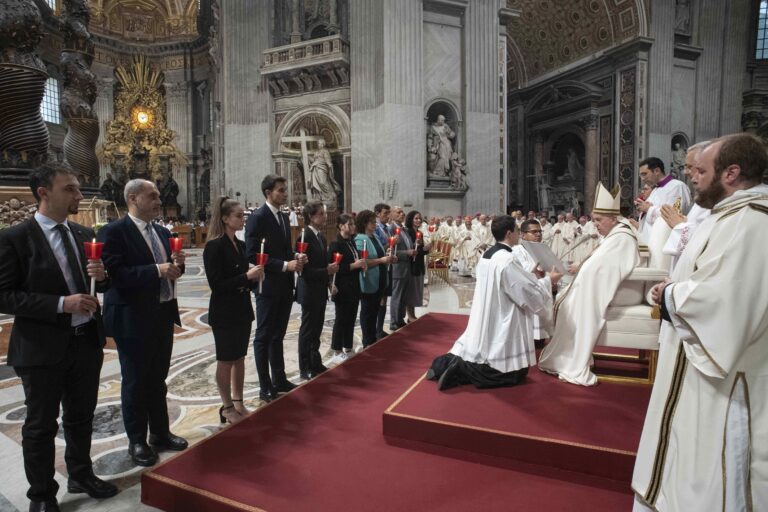In a message marking the 60th anniversary of the opening of the Second Vatican Council, the organisers of the Synod on Synodality called the Synod of Bishops a “fruit” of the council.
Perhaps the most significant event in global Catholicism in the past century, the Second Vatican Council was formally opened by Pope Saint John XXIII on October 11, 1962, gathering bishops from around the world to explore revisions and reforms with the goal of making the church better understood and more effective at evangelisation in an increasingly secular world. It was closed by Pope Saint Paul VI on December 8, 1965.
The 16 magisterial documents produced by the council outlined sweeping liturgical reforms; laid the framework for ecumenical and interfaith bridge-building; underlined the need for more lay involvement in church life; and stressed the importance of developing strategies that were more pastoral in nature.
Championed
Pope Francis, who was a young member of the Society of Jesus when the council took place, has championed many of these causes as Pope, from his emphasis on mercy, to his efforts in ecumenical and interfaith dialogue, to his promotion of laypeople even in key positions within the Roman Curia and his decision to allow them to lead Vatican departments, to his own liturgical legislation further restricting the pre-1962 Traditional Latin Mass.
Quoting the Pope, the Synod’s general secretariat on Monday said the Synod was “indeed one of [the Council’s] most precious legacies”.
“The purpose of the Synod was and remains to prolong, in the life and mission of the Church, the spirit of the Second Vatican Council,” the message said.
“The concept of ‘synodality’ is found throughout the council, even though this term (only recently coined) is not found expressly in the documents of the ecumenical assembly.”
Its purpose is also to “foster in the People of God the living appropriation” of the council’s teaching, with the awareness that the council itself was a “great grace from which the Church has benefited in the 20th century”.
“This task is far from being completed since the reception of the conciliar magisterium is an ongoing process; in some respects, it is still in its infancy,” the statement said, alluding to various forms of resistance to the council and its reforms.
Signs of the times
Throughout the decades that have passed since the synod was first instituted in 1965, the office of the Synod of Bishops has consistently “placed itself at the service of the Council, contributing for its part to renewing the face of the Church” through faithfulness to scripture, the church’s “living tradition”, and attentiveness to the signs of the times.
Synod gatherings at every level, whether it be ordinary, extraordinary or special, have been “permeated, in (their) own way, by the life-giving sustenance provided by the Council”.
“From time to time, these Assemblies have deepened this same teaching, disclosed its potential in the face of new scenarios, and fostered inculturation among peoples,” the statement said, calling the current Synod on Synodality a continuation of the council’s legacy.
The words “communion, participation, and mission” that are included in the title of the ongoing synod, the statement said, are “eminently conciliar words”.
“The Church that we are called to dream and build,” the statement said, “is a community of women and men drawn together in communion by the one faith, our common baptism and the same Eucharist,” who in despite differences in ministry and charism, “actively participate in the establishment of the Kingdom of God”.
God expects
In this sense, synodality, it said, is “a constitutive dimension of the Church” and it is “the path that God expects from the Church of the third millennium”.
In March 2018, the Congregation for the Doctrine of Faith’s International Theological Commission produced a document on the theological roots of synodality in the Church: “Synodality in the Life and Mission of the Church”.
The CDF document noted that in the history of the Church, synods and councils were nearly interchangeable terms for formal ecclesiastical assemblies.
It said that the more modern view of a synod as something distinct from a council does not go back even as far as Vatican II, and that its development was accompanied by the neologism of “synodality”.
Speaking of the Church as “synodal” by its nature is something novel, the commission said, and required “careful theological clarification”.
The Vatican’s message on Monday said the “synodal process currently underway is also within the Council’s wake”.



